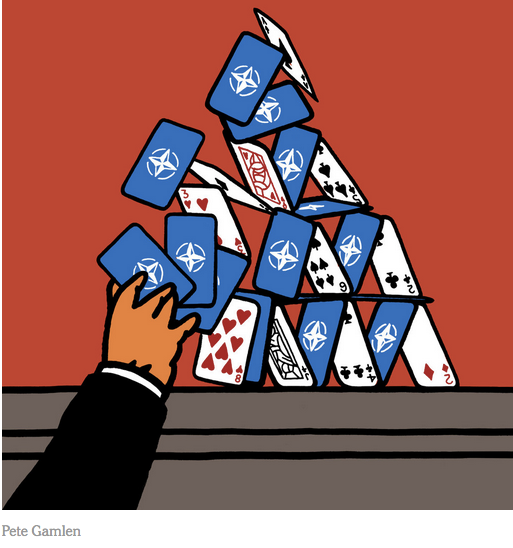Before Mr. Trump attended his first meetings of NATO and the Group of 7 last week, European leaders hoped they could bring him around on critical issues. That now seems like a pipe dream. Mr. Trump doubled-down on his most destructive campaign impulses by hectoring the other members at length for what he called their insufficient levels of military spending, and by refusing to reaffirm NATO’s bedrock mutual defense commitment. He also broke with the allies on other issues. He offered a more conciliatory line on Russia and refused, despite their entreaties, to endorse the Paris agreement on climate change.
When he returned home, Mr. Trump stoked the fires more, complaining in a tweet that Germany pays “far less than they should on NATO & military. Very bad for U.S. This will change.” His remarks showed no appreciation for how NATO works, how Ms. Merkel is in fact pushing her country to spend more on defense — and, more generally, how comments like this insult a trusted ally.
Europe’s dismay could only have deepened when Congress seemed to cheer Mr. Trump on. Republicans, who once prided themselves as stewards of national security, have shown little concern about the way Mr. Trump treated NATO members or the links between Mr. Trump’s aides and Russia. In a statement, Senator Bob Corker, chairman of the Senate Foreign Relations Committee, gushed over Mr. Trump’s trip to Europe and the Middle East, saying it was “executed to near perfection.”




